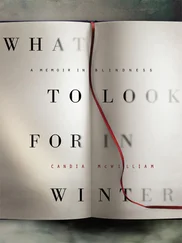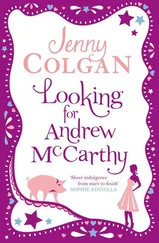Edeet Ravel - Look for Me
Здесь есть возможность читать онлайн «Edeet Ravel - Look for Me» весь текст электронной книги совершенно бесплатно (целиком полную версию без сокращений). В некоторых случаях можно слушать аудио, скачать через торрент в формате fb2 и присутствует краткое содержание. Жанр: Старинная литература, на английском языке. Описание произведения, (предисловие) а так же отзывы посетителей доступны на портале библиотеки ЛибКат.
- Название:Look for Me
- Автор:
- Жанр:
- Год:неизвестен
- ISBN:нет данных
- Рейтинг книги:5 / 5. Голосов: 1
-
Избранное:Добавить в избранное
- Отзывы:
-
Ваша оценка:
- 100
- 1
- 2
- 3
- 4
- 5
Look for Me: краткое содержание, описание и аннотация
Предлагаем к чтению аннотацию, описание, краткое содержание или предисловие (зависит от того, что написал сам автор книги «Look for Me»). Если вы не нашли необходимую информацию о книге — напишите в комментариях, мы постараемся отыскать её.
Look for Me — читать онлайн бесплатно полную книгу (весь текст) целиком
Ниже представлен текст книги, разбитый по страницам. Система сохранения места последней прочитанной страницы, позволяет с удобством читать онлайн бесплатно книгу «Look for Me», без необходимости каждый раз заново искать на чём Вы остановились. Поставьте закладку, и сможете в любой момент перейти на страницу, на которой закончили чтение.
Интервал:
Закладка:
The phone rang. For a second I thought it might be Rafi, and I was afraid to answer.
But it was Beatrice, my freckled red-haired friend. I didn’t hear from her very often. She was an activist and also a philosophy teacher, and she had a very hectic life, running from one international conference to another while she tried at the same time to raise a family, correct student papers, organize events, and write books. Sometimes in desperation she dumped a pile of essays on my bed and begged me to correct them for her. She visited about once a month, and usual y stayed the night.
“Darling, Dana, how are you?” she asked. “I heard about the demo, I couldn’t make it. Are you okay?”
“Yes, I’m fine.”
“Good. It’s been absolutely crazy. I haven’t seen you in so long, maybe I’l drop by next weekend? My car broke down, it’s just been insane.
I need some quiet time with you, dear.”
“Come on Friday, but cal rst to make sure I’m home. We’re going to South Lifna, I don’t know how long we’l be. Some rabbis are coming with us, so we’re supposed to get back before sunset, but who knows.”
“Perfect. I can’t wait, dear. We’l talk on Friday. Yal a, bye, love.”
I met Beatrice ve years after Daniel left. I was taking photographs of a candlelight vigil at the Women’s Reconciliation Tent, and Beatrice came up to me and asked about my work. At the end of the evening she insisted on giving me a ride home. “There’s a chicken sandwich in my bag,” she said, when we were in the car. She turned the ignition. “See if you can nd it, I’m famished.” I looked inside her huge, messy bag, which was stuf ed with books, papers, makeup, hand lotion, sunscreen, and a lot of other junk. At the very bot om I found the sandwich, wrapped in tinfoil. She of ered me half and we ate as we drove. “Delicious,” I said.
When we reached my building she asked if she could come in.
“Of course,” I said.
She wanted to see my photographs, and she was very excited about some of them. She was an excitable person in general. We sat on the living room floor, and she spread the photos out on the faded Turkish carpet until we were surrounded by a sea of images.
When I rst took up photography I tried to capture the pat erns and moods of people on the beach. I loved the dots of color sprinkled against the sand—no artist could have deliberately planned more intriguing compositions: streaks and splashes of brick red, bright yel ow, pale blue, lol ipop orange, black crescents on lime green. And I loved the way people let go at the beach: their bodies expanded with joy or wistful contentment or, at worst, resignation. The photos were of families and couples and solitary men or women; smal naked children playing beach tennis or balancing on the edges of chairs; tubby people and thin young couples; a dark young man asleep on his stomach, his leg curled up toward his chest, sunk in the sand, exhausted, unable to bear the exhaustion, demanding comfort from the sand and finding it.
But most of my photographs were of the con ict, the physical ugliness of war, the people lost inside it. War destroys the landscape: for example, the metal lockers and cement blocks at checkpoints, crumbling stone and pieces of bent metal everywhere, human cages, watchtowers, ripped asphalt, barbed wire, oating garbage pinned to the barbed wire; shredded rubbery camou age, imsy and amorphous, like the khaki skin of a sea monster; improvised structures at military posts, al of them cheap, makeshift cement squares, slightly askew, because who can be bothered with architecture in wartime? No one worries about beauty when people are kil ing each other. Inside the mess and chaos oated an endless multitude of faces and bodies, extraordinary because of the extraordinary circumstances. They left their signatures on the landscape in the form of competing gra ti. Palestinian gra ti was trilingual: Long live the PFF, I am the son of the PFF
(Arabic); Come and see what you have done (misspel ed Hebrew); American Occupation of Palestine (English). In response, young soldiers sprayed available surfaces with their own defiant strokes: the name of their unit, a Star of David, a fighter plane.
“How did you get into photography?” Beatrice asked.
“It’s a long story.”
“I’m going to publish these photos,” she said. “Good thing I married a man who has not only a heart but also money! Now, what about your personal life?” she asked.
“Nothing much going on.”
“That’s what I was afraid of. You can’t live like a cloistered nun, you know.”
“Yes, yes …” I said vaguely.
“Don’t ‘yes yes’ me, dear. Are you having any sex at al ?”
“No.”
“Since when?”
“Four years, seven months. There was someone a year after Daniel left, just a onetime thing, it was a disaster.”
“That’s scandalous. Someone like you! Don’t you miss it?”
“I miss Daniel.”
“You feel you have to be loyal to him.” It was a mild reprimand: she clearly didn’t think much of my approach.
“I can’t help the way I feel,” I said apologetical y.
“Listen, dear. Would you feel it’s less of a betrayal if we slept together?”
I considered her question. “Yes,” I said at last. “Daniel wouldn’t mind. It wouldn’t bother him.”
She looked at me a lit le pityingly, as if I were slightly backward. “I’l stay the night, then.”


She looked at me a lit le pityingly, as if I were slightly backward. “I’l stay the night, then.”
“Al right. But I’m not experienced with women.”
She laughed. “I’l let you read the manual rst.” She phoned her husband and told him she wasn’t coming home. “Dudu, my love, I’l be back in the morning, I’m staying with Dana, poor sweet thing,” she said, smiling at me. “Don’t forget Hagari has her project, and there’s that pizza in the freezer …yes…yes…fine. Bye for now, honey.”
“He sends his regards,” she told me, put ing her phone away. “So, let’s have some fun.”
I didn’t know how old Beatrice was; she never told anyone, and it was impossible to guess, partly because she was covered with freckles.
There were times when I thought she was in her early forties, but then under bright morning light, just waking up, her russet hair spiky and sil y on the pil ow, she seemed older. She never discussed her past, she only talked about her current projects and her hopes for an end to the endless war, but I knew she had lost a son in the rst Palestinian uprising. Sometimes she let me read her poems, which she scribbled on receipts, student papers, or any handy scrap of paper. The poems were ruthless: the sergeant twists in his muddy bed one last oh fuck / in the evening nothing remains but the television fantasy of one more hero helping his country / over there lie the remains of the Palestinian girl he sported with this morning. Nothing about Beatrice suggested that she harbored such poems and she seemed rather embarrassed when she showed them to me. I had a sense that I was the only person who saw these poetry scraps before they were stuf ed into drawers.
We had an easy friendship, casual and simple. But I knew that Beatrice didn’t approve of the way I conducted my life. She believed in looking ahead. It seemed to me that there was a price to pay for detachment, even if it helped Beatrice survive. In any case, detachment was not an option for me: Daniel was alive.
Daniel was not interested in politics, as far as I could tel . When I brought up political subjects, his eyes would glaze over or else he’d start kidding around. “Saint Dana,” he’d tease me. But I wasn’t a saint; I acted as I did in order to stay a oat. I was living in the midst of a Swiftian farce and the only way for me to stay sane and keep my perspective was to become Gul iver. That was probably the reason I’d never joined any party or group. When I was growing up my father took me to demonstrations, and after he left the country I went on my own. I was a few feet away from the grenade that kil ed a demonstrator and wounded others, at one of our largest peace ral ies. A Jewish extremist had thrown a grenade into the crowd. I heard a deafening explosion, the air l ed with smoke, and everyone began running and screaming. For a while I was nervous about taking part in demonstrations, but the fear passed. You never knew how or when you’d die. No one can control fate, not by staying home and not by going out.
Читать дальшеИнтервал:
Закладка:
Похожие книги на «Look for Me»
Представляем Вашему вниманию похожие книги на «Look for Me» списком для выбора. Мы отобрали схожую по названию и смыслу литературу в надежде предоставить читателям больше вариантов отыскать новые, интересные, ещё непрочитанные произведения.
Обсуждение, отзывы о книге «Look for Me» и просто собственные мнения читателей. Оставьте ваши комментарии, напишите, что Вы думаете о произведении, его смысле или главных героях. Укажите что конкретно понравилось, а что нет, и почему Вы так считаете.












